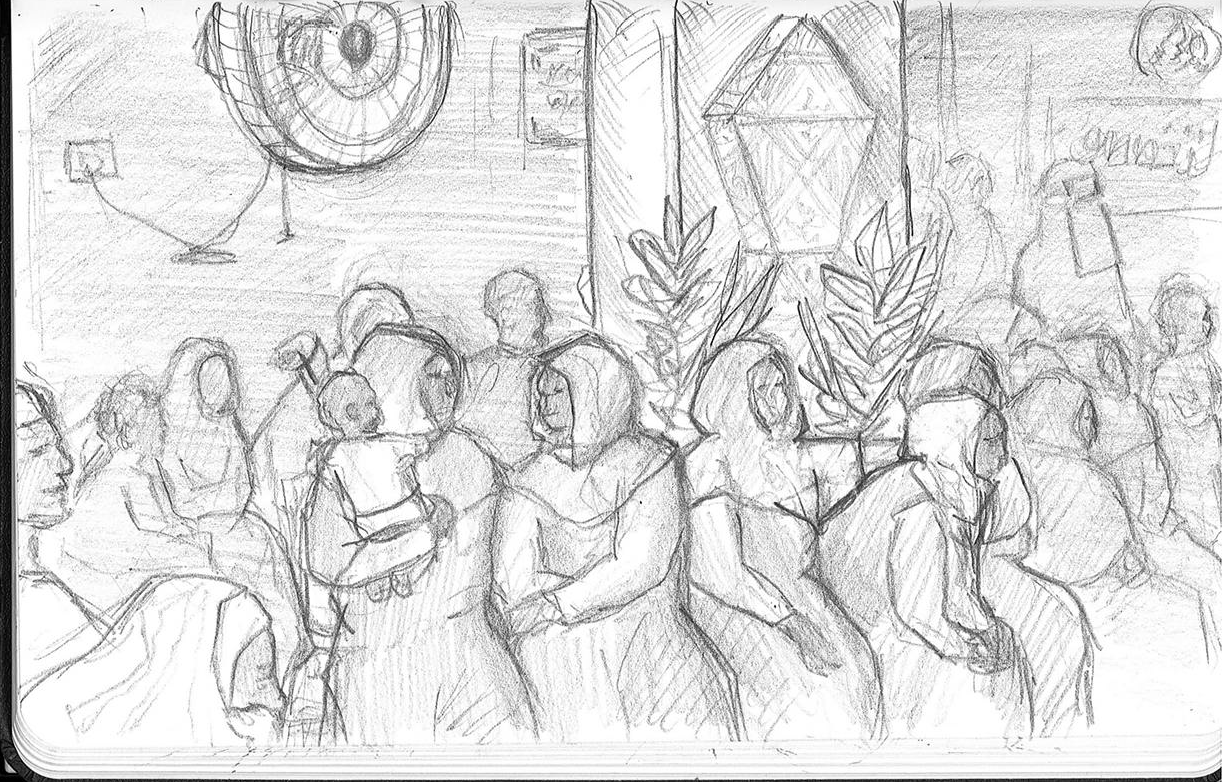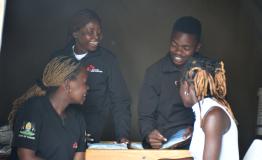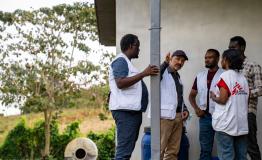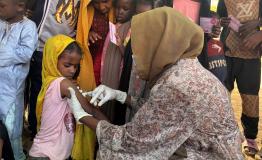Bringing medical care to Egyptian and Sudanese people in Aswan
Khaled* sits in the corner of the waiting room, with his UNHCR registration card in one hand, and a little plastic bag full of empty medication packets in the other. This is his third visit to the clinic in Daraw, receiving treatment for his chronic illness.
“We had a comfortable life in Sudan and leaving it was very difficult. But it was our only option,” says Khaled, originally from Jezirah, Sudan but now living in Daraw, a little town in the governorate of Aswan, south of Egypt. “Our home country is left without healthcare, and older people like me cannot stay long without it.” Khaled is one of the 1.5 million Sudanese living in Egypt, many of them crossed after the recent war started in 2023.
In Daraw, Médecins Sans Frontières (MSF) runs a mobile clinic in partnership with Om Habibeh Foundation (OHF), an Egyptian organization with a long history in Aswan governorate. The two organisations started implementing the mobile clinic activity in January 2025 in five different locations in the Egyptian southern governorate.
The objective of this activity is to make access to healthcare easier to people who need it, while supporting the existing healthcare system in Aswan governorate. Since then, the team has provided over 7,265 general consultations and over 6,600 consultations for non-communicable diseases. In addition, the team has provided more than 1,470 individual mental health consultations and more than 2,440 health promotion sessions.
Every morning, a joint MSF and OHF team, consisting of doctors, nurses, psychologists and health educators, visit these locations and provide primary medical care to Sudanese and Egyptians who do not have it elsewhere.
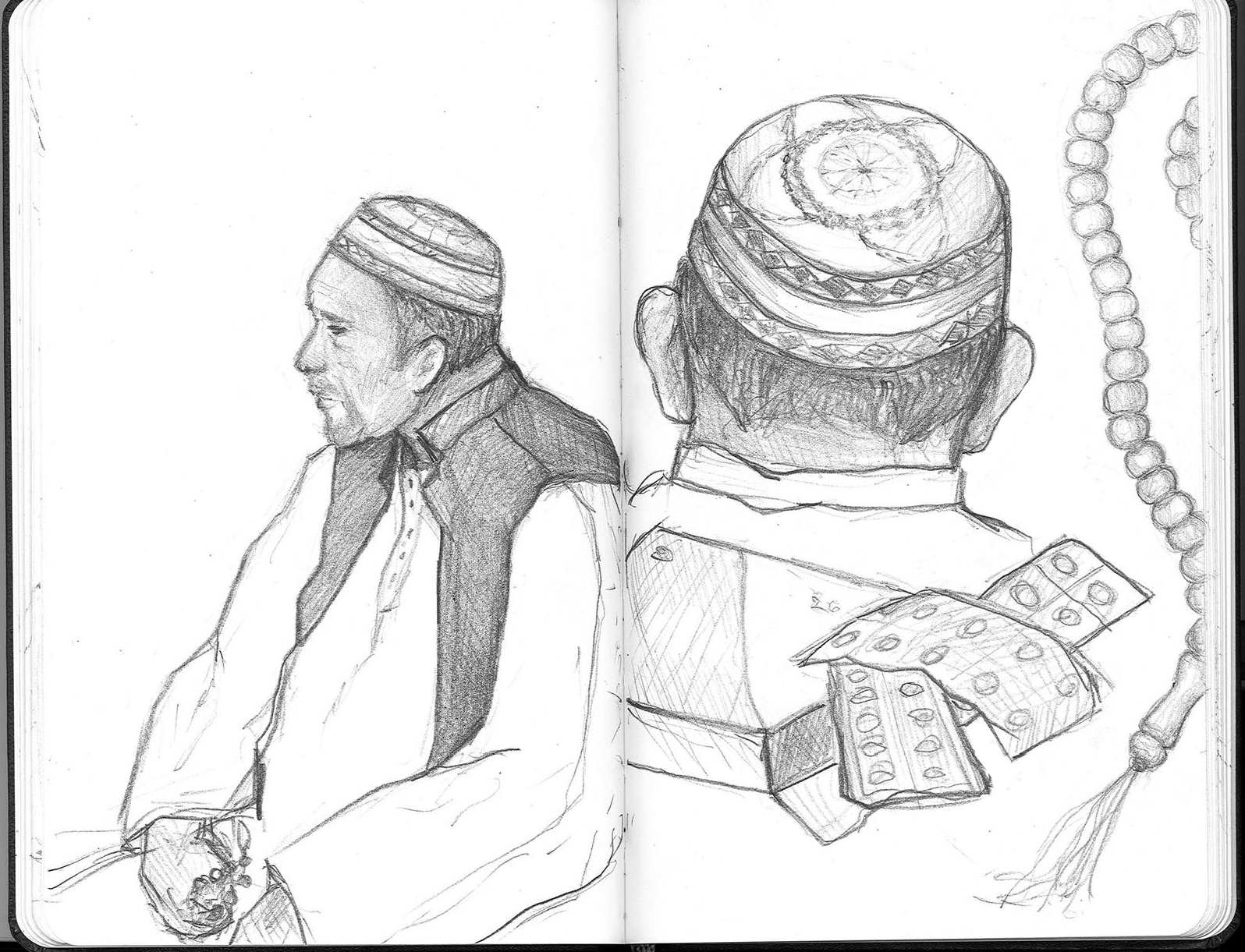
Working with the community: a key component for a successful mission
Since the start of the activities, the two organisations knew that to reach the targeted communities and adapt to their needs, they need to engage closely with them. While the Egyptians and the Sudanese are co-existing in Aswan, their needs are different, and their behaviours towards accessing healthcare is also different.
For the Sudanese, who left their homes with very little on them, have additional challenges and needs. For many, the legal status often determines their freedom of movement and access to healthcare, from fear of intimidation or violent reactions towards them.
“Fleeing war and leaving their homes behind add a serious toll on people’s mental health. We see a lot of patients who suffer from anxiety, depression or post-traumatic stress disorder (PTSD) due to their pasts, what they went through whether in Sudan or on their journey here, and the uncertainty of their current lives,” says Moses Luhanga, MSF health promotion activity manager in Egypt.
Without community engagement, it is difficult to reach the community and get a grasp of their needs. The teams work with have several community mobilisers, who act as the link between us and the communities.
To get to them, the medical team is increasing the efforts to reach the people in need, by collaborating with community-based organisations to reach Egyptians, and other community leaders and mobilisers to reach the Sudanese refugees who settled here or even those who are on the move.
While the needs are different, and the challenges that obstruct them from accessing healthcare are also different, the financial aspect remains their biggest constraint that is shared among many, either to reach the facilities, or even to buy the medications prescribed. This is the case of Heba*, an Egyptian mother of seven, who finds it difficult to cover all her medical bills and feed her children at the same time. “While I do have access to the public services as an Egyptian woman, I prefer to come here as I receive all my medications for free,” says Heba. “It helps me save some money for my family, instead of paying at the pharmacy.” For many in the governorate of Aswan, Sudanese and Egyptians alike, living costs are increasing, adding more pressure on them to continue feeding their families.
More and more Egyptians are now coming to receive care in our mobile clinics, but most of the patients remain Sudanese.
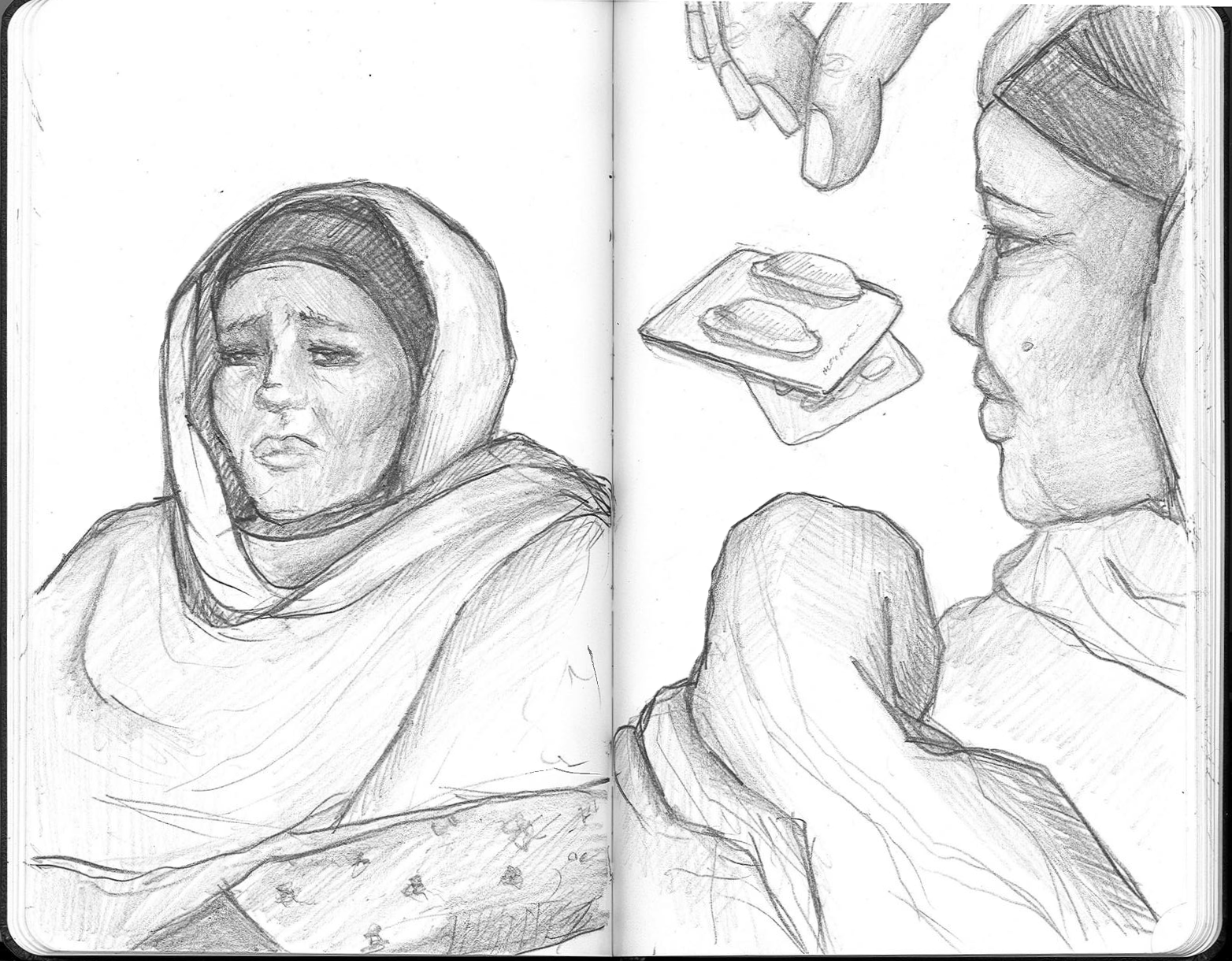
Care that goes beyond basic medical care
In Karkar, 70 kilometres south of Daraw, Aliya* has a different story. She first came to the clinic when she found out she was pregnant, thinking she could deliver her baby at the clinic. Although the medical team does not provide delivery services, our referral team makes sure to refer the patients who need additional medical care to other organisations or health facilities. “I was very relieved when I was told that my delivery will be taken care of by the medical team, including transportation costs to the hospital. I do not have sufficient money to pay for it,” says Aliya, with a big smile on her face.
Daily, an MSF referral nurse follows up with patients who require additional services that neither MSF nor OHF provide. While many of the patients, Aliya being one of them, require secondary medical care, a lot ask for non-medical services such as protection or financial or social services. Since the introduction of this new service in September 2025, more than 80 patients have been referred to other organisations, reflecting on the high needs for further care.
The link with the community mobilisers is also key for this component, as the solidarity between the host community and the refugees, as well as the inter-organisations network alleviate the sufferings of many.
